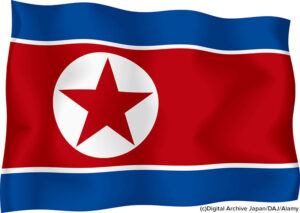
Was 2015 a Good Year for Jobs?
In the years since the Great Recession, our economy has reported many episodes of upturn. But 2015 was the first prolonged stretch of job creation since the late 1990s. The U.S. Bureau of Labor Statistics (the government agency that collects economic data and distributes it to the American public) released its latest monthly Jobs Report. In December, the American economy added 252,000 jobs, while the unemployment rate fell to 5.6 percent. An increase in consumer spending this year has encouraged employers to hire more people.
But not everyone thinks this is good news. Experts say that wage growth still remains weak, with hourly pay slipping by 5 cents. Others say that unemployment figures do not reflect those who have given up looking for work and, therefore, not counted as officially unemployed. One of the biggest concerns of the American job market, is the recent turmoil in China’s financial markets. In addition, the Federal Reserve raised interest rates for the first time in nearly ten years. How this is perceived and how to deal with these, and other economic issues, are likely play a big part in this year’s presidential election.
What Do You Think? Do some research and determine what factors determine a “healthy economy” and find out how economists differ in their perception of the current (and near-future) state of what’s going on in the United States and around the world.
North Korea’s Bomb Test

North Korea is no stranger to our btw posts. Last year, we reported on the country’s role in a hack of Sony Pictures in retaliation for its release of The Interview, a satirical movie that pokes fun of North Korean leader, Kim Jong-un. The famously hostile country has a history of conducting nuclear tests that the United Nations opposes and have responded with a series of strict sanctions (penalties, usually in the form of economic restrictions such as limiting trade or monetary aid). North Korea maintains that it has the right to protect itself, mainly from the U.S. and its allies.
In the most recent test, North Korea claims to have detonated a hydrogen bomb. Many are skeptical of this claim, as the country has a long history of exaggerating its capabilities to develop the technology necessary to build a thermonuclear weapon. Radiation tests of the ground and air in the region have not found traces of radiation. Nevertheless, some kind of bombing activity did occur in the capital city of Pyongyang. The United States has responded with military action, flying fighter jets over the Korean Peninsula, along side planes from its ally, South Korea.
Dig Deeper. Find out how the recent testing affects the “six-party talks” concerning North Korea’s nuclear weapons program.
Star Wars Continues to Break Records
Okay, you’ve probably seen Star Wars: The Force Awakens, right? Maybe even a couple of times already? And if not, you’re probably not interested and wish that everyone would just stop talking about it. Well, that’s not likely to happen any time soon. Everybody seems to love it—die-hard fans, the fair-weather enthusiasts, casual observers, young children, great-grandparents. You may have heard that it continues to break office records and wonder what those are.
So far, The Force Awakens has earned the brag of biggest opening weekend in American history, highest four-day total, and surpassed the $300 million mark in record time. Globally, it has broken the record for the biggest debut of all time, with ticket sales of $529 million. The franchise is also the most lucrative in the world, generating more than $30 billion in merchandise revenue so far. The next record it the movie seeks to break is worldwide sales, currently held by 2009’s Avatar, with $2,787,965,087. Adjusted for inflation, the top five biggest-earning films in history are: Gone With the Wind (1939), Star Wars (the 1977 original, or, Episode IV: A New Hope), The Sound of Music (1965), E.T. (1982) and Titanic (1997).
What Do You Think? Are you in the category of people who love Star Wars or those who care less? Explain your answer in detail.
Giant Mao Gone
A 120-foot, $465,000 gold-colored statue of Chairman Mao, the founder of the People’s Republic of China, was completed and then torn down in the same week. Located in the rural Henan Province of China, the statue had been under construction for several months. It was funded by a local businessman named Sun Qingxin, the deputy chairman of the local Country People’s Congress Standing Committee. Local officials of the Zhushigang village say that statue was never registered or approved and, therefore, was ultimately demolished. However, many believe it was a loud, collective voice of opposition that was led to the removal of the statue only a few days after it was erected.
Opinions about Mao Zedong’s legacy vary widely. There are those who praise him as a model for modern Chinese leaders. Others deeply criticize some of his policies, notably, the Great Leap Forward, a Communist campaign widely considered the cause of the Great Chinese Famine (1959–1961). Some of the criticisms about the recent statue revolved about the extravagant waste of resources (including that the funds could have been better spent on healthcare and education, greatly needed in the region) as well as its “inappropriate” rural location.
